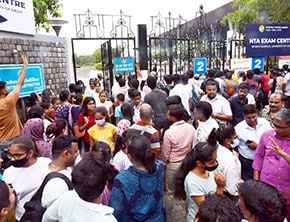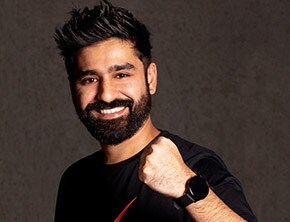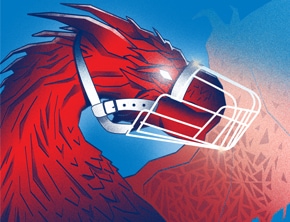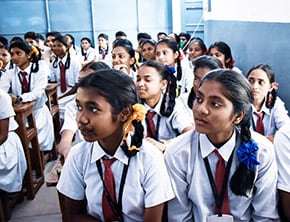Our top reads of the week
From Vistara climbing new heights to inequality in education even after 75 years of independence, here are our top reads of the week


 1) Flying high
1) Flying high
Vistara CEO Vinod Kannan knows a thing or two about emerging out of turbulence. His first aviation job came right in the middle of the post-9/11 chaos for the global air travel industry. His latest aviation job as the chief of the Tata group"s premium airline came right before the world went into lockdown due to the coronavirus pandemic. The fact that he survived the turbulence in the industry to reach Vistara in 2019 showcases his successful stint since 2001. And with Vistara, it seems both—the man and his company—managed to emerge out of the pandemic relatively unscathed and mightier than ever before. Vistara became India’s second-largest airline by market share, crossing the significant 10 percent milestone in July 2022. What"s the secret? Let"s find out. Read More
 2) Teething pains
2) Teething pains
Being in school, especially at the cusp of graduating for higher studies, has not been easy for students throughout the pandemic. Worries about board exams and getting admission into the college of your choice were accentuated by the uncertainty of the system disrupted by Covid-19. As if that wasn’t enough, the National Testing Agency (NTA), in March 2022, introduced the Common University Entrance Test (CUET), a standardised test for admission to undergraduate and postgraduate courses, diplomas, certification courses, and research programmes. It is not cute. With 14.9 lakh registrations in its introductory year, CUET-UG has become India"s second-biggest examination, but it is plagued with teething troubles that are affecting students, and has become a brand new opportunity for edtech platforms. Read More
 3) Smart player
3) Smart player
When they started, the likes of Micromax and other desi hustlers had established a successful playbook of ‘import from China, and then brand and sell in India". In 2015, Arnav Kishore decided to ape it and do even better. He launched Fire-Boltt with his sister Aayushi, and the first product under the umbrella was a smart band priced at just Rs 1,999. Kishore had to wait a long time to finally pounce and claim market share. A pandemic helped, followed by endorsements from a battery of celebs in 2021. The good times continued to roll in 2022 as well. In Q2 of FY22, Fire-Boltt pipped Noise to emerge as the biggest smartwatch brand in India with a market share of 28 percent. Fire-Boltt is on fire. But how sustainable is the "import-from-China playbook"? Read More
The WazirX controversy over its ownership with global crypto exchange Binance has jolted the Indian crypto industry. Additionally, for an Indian crypto retail investor, a stifling tax structure makes investing and trading a financial hazard. A rise in bitcoin and Ethereum prices from their June lows is still not a welcome light in the dark days of crypto winter. Equity markets across the globe have staged a bit of a recovery—after a depressing first half-year—in the hope that global inflation will start to ease off and that it may not completely derail growth across economies. Consumer spending in some countries is also starting to improve. Is this current market phase a short, summery day in a still-bleak crypto winter? Read More
 2) Chinese checkers
2) Chinese checkers
In 2014-15, India saw the MILK revolution—homegrown smartphone brands, Micromax, Intex, Lava and Karbonn were giving Nokia and Samsung a run for their money. But soon "import-from-China-brand-and-sell-in-India" play ran its course. Over the next eight years, a new fact emerged. Indian players got decimated and the smartphone market became synonymous with Chinese brands. Xiaomi, Realme, Vivo and Oppo are the leaders of the 70 percent Indian smartphone market dominated by Chinese players. With tax authorities cracking the whip for alleged tax evasion by these players, India is well-placed to prop up the desi boys to mute the dragon"s play in smartphones. But will the government make the right move? Read More
 3) 75 years of inequality
3) 75 years of inequality
After 75 years of Indian independence, we still have a low-quality, pro-private, hierarchical school system. A vast majority of poor and marginalised parents are not sure if the education their children get will help them realise a decent living if not an egalitarian social and economic order. Unequal education will never let us realise the goals of social, economic, and political justice and equality of status and opportunity envisaged in the Indian Constitution. Why are we still struggling to provide universal, equitable, and quality elementary education to our children? Read More
 4) Global ambition
4) Global ambition
In this episode of Daily Tech Conversation, Mayank Tiwari, co-founder and CEO of ReshaMandi, a natural fibre venture in Bengaluru, talks about how the company is seeing strong growth, having found its product-market fit over the last 12 months. He also talks about the ambition to make the company the first destination for any natural fibre product in India and abroad, with complete traceability built on top of a strong digital tech backbone. Listen here
First Published: Aug 27, 2022, 09:07
Subscribe Now 1) Into the unknown
1) Into the unknown